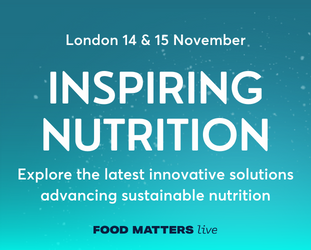European research project gets €10M to develop preventative childhood obesity measures using AI

A European project has secured a budget of €10 million to develop research around childhood obesity risks and treatments using Artificial Intelligence (AI).
The five-year initiative called ‘EprObes’ will be coordinated by Manuel Tena-Sempere, Empar Lurbe and Fernando Fernández-Aranda – researchers from Spain’s Centre for Biomedical Research (CIBER). Scientists from other countries including Denmark, France, Poland, Belgium, Germany, Estonia, and Turkey will also be invited to work on the project.
Researchers will use AI to bring together data analysis and machine learning algorithms to design more effective, personalised measures for physicians and health professionals to use to prevent and treat overweight and obesity in young patients.
The project is coordinated by CIBER and its Physiopathology of Obesity and Nutrition branch (CIBEROBN), which will lead the research taking place at several Spanish academic institutions, including the University of Córdoba, Bellvitge Biomedical Research Institute (IDIBELL), Maimonides Institute for Biomedical Research of Córdoba (IMIBIC), the Higher Council for Scientific Research (CSIC), and the University of Valencia, as well as 18 other international research centres.
To develop more personalised treatments for childhood obesity, the scientists will work to identify key risk factors and preventative measures, assessing how children gain weight during specific periods of development, such as the periconception period (14 weeks before and 10 weeks after conception), the early stages of childhood, and during puberty.
The study will also analyse environmental factors (e.g. pollutants), family conditions, maternal metabolism, foetal growth and epigenetics and their impact on children in the early stages of growth.
Both girls and boys will be compared in the research to further understand how factors such as hormones, metabolism, gender roles and social disparities impact the development of obesity.
Researchers also plan to assess how mental health and eating disorders affect the risk of developing obesity.
Once the data is gathered from the sample cohorts, the researchers will then work towards developing AI-supported tools that can deliver personalised treatments for obesity and excess weight to the study participants.
According to the project coordinator and Principal Investigator of the Spanish Biomedical Research Centre in Physiopathology of Obesity and Nutrition (CIBERON), Manuel Tena-Sempere, the initiative looks to develop “preventive strategies from the early stages of life.”
“Despite great research efforts, up to now, treatments for the most common forms of obesity have shown to have limited efficacy”, he explained in a statement. “Therefore, effective prevention strategies, especially in the early stages, are essential to avoid the full spectrum of metabolic complications caused by being overweight throughout life”.









